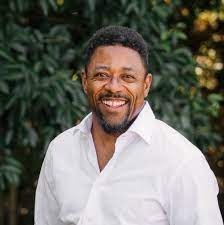
My frame of mind creating financial plans centers on understanding the ability of money to create resonance on the eternal thread that connects our lives to the legacy living beyond our mortal flesh and blood.
The markers of our legacy – kids, foundations, good works, or great ideas – share a goal of life-affirming spiritual survival. The hope is that these initiatives, imbued with the spirit of their creators, will live on, and reflect their character learnings and contributions to bettering and improving society.
For most of humankind the length of a generation was relatively fixed at around 30 years. In the 20th century, it expanded closer to 75 years. Presently we are experiencing a radical leap through which human beings are expected to live far beyond 75. Google’s futurists posit that if you are alive in the year 2030 then you can expect to live to be 130 years old. This is the receding horizon such that every year you live, scientific advancement adds more than a year to your life expectancy. Yes, we see the articles that talk about shortening aggregate life expectancy but for those who maintain a certain minimal standard of mental and physical health the prospect of increasing longevity ages is increasingly likely.
Normally financial market cycles move in roughly seven-year waves. Conveniently, retirees used to live about seven years from 65 to 72 years old. Consequently 20th century financial (and pension) planning simply required us to identify where we were in the 7-year wave and make sure that the person wasn’t retiring into the trough. If that trough happened at the end of their life, when savings were low, it wasn’t that important.
But what are we to do with the retiree who lives through 4-5 big waves? At the same time, we have young people who are asking the question, how can I live through 4-5 waves if I reduce my expenses enough that I can retire early? These younger people started the movement called FIRE (an acronym for Financial Independence Retire Early) devoted to a program of extreme savings and investment that aims to allow them to retire far earlier than traditional budgets and retirement plans would permit.
To address the needs of FIRE clients, we developed a special type planning methodology focused on surfing successive waves. It’s much more complex and technical but the upshot is that they can do it with surprisingly small amounts of money.
Imagine if we apply the FIRE planning methodology in which we deal with the challenges of a very long retirement to the case of the older person realizing suddenly that they too might have a retirement spanning four or five big waves. The result: the older generation is learning from the younger movement. In this way the legacy of the younger generation is being paid “backward” to their foremothers and fathers. And what is the payoff?
The old idea of school → work → retirement has been bent such that retirement leads back to school again. This is because “retirement,” even at 65 means there might be another 65 years of time left. Many retirees are finding that with longevity, the retirement goal of vacationing gets stale and the grandkids grow up. At the same time, work has ceased to be only about income and more often provides non remunerative meaning in our lives.
Raymond Catell was a British-American social psychologist who, during the 1960’s and 1970’s, argued that we all have two intelligences; one that blooms early (fluid) and one that blooms later (crystal). The basic idea is that you’re good at something when you’re young and skilled at something else when you’re older. Fluid intelligence peaks sometime in our late 30s or early 40s before it starts declining. Crystallized intelligence, based on all the things we know combined with knowing when and how to use them, increases through our 50s or 60s and stays high into our 80s or 90s. What does this mean for an individual who quits their job and retires at 65? They’re just getting started at exercising the expanded wisdom, communication skills and teaching ability sorely lacking within the leadership of society.
Instead of idly retiring, imagine a class of people who decide to bolster their crystallized geniuses with new educational insights – the multiplicative benefits to society could be amazing. Accordingly, we are finding that many older people are setting up educational accounts, not for their kids, but rather for themselves! They realize that with a modest amount of education they can re-enter the workforce and find meaningful gainful employment that is very much welcomed by employers.
Buddhists often talk about the circularity of living energy and hint at a notion of a long continuous thread that is embedded in our spirits. In this spirit, we are seeing circularity with old giving back to their families’ and societies because of guidance from the younger generation.
Thanks for this generations essay. I just read an article about an increased rate of young adults moving back home with their parents. This is related too. I find the current generational conflicts, ebbs, and synchronicities intriguing.